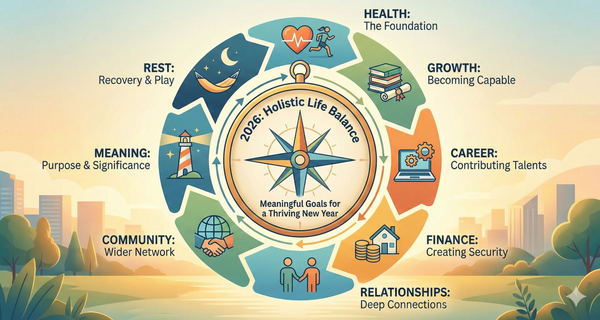Gratitude Practices That Really Work
The Science-Backed Benefits of Gratitude
In a world that often emphasizes what we lack, cultivating gratitude can be a transformative practice. It shifts our focus to the abundance in our lives, fostering a sense of contentment and well-being. This gratitude practice is not just a fleeting feeling but a powerful tool for profound personal change. By embracing thankfulness tips, we can unlock lasting happiness habits that reshape our perspective.
The advantages of a regular gratitude practice are not just anecdotal; they are backed by extensive scientific research. Engaging in thankfulness habits has been shown to provide significant psychological and physiological benefits, reinforcing its importance as a cornerstone of mental and physical health.
Boosts Happiness and Reduces Depression
Perhaps the most well-known benefit of gratitude is its powerful effect on our emotional state. When we regularly acknowledge the good things in our lives, we stimulate the production of dopamine and serotonin, neurotransmitters responsible for feelings of happiness and well-being. This conscious focus on the positive can effectively counteract negative thought patterns, reducing symptoms of depression and anxiety. A consistent gratitude practice helps build emotional resilience, enabling us to better navigate life's challenges.
Improves Sleep and Physical Health
The positive effects of gratitude extend to our physical health. Studies have shown that people who practice gratitude tend to experience better sleep quality and duration. Writing in a gratitude journal before bed can calm the mind, leading to more restful sleep. Additionally, grateful individuals often report fewer aches and pains, have lower blood pressure, and exhibit stronger immune systems. These happiness habits contribute to a healthier, more vibrant life.
Strengthens Relationships
Expressing gratitude to others is a cornerstone of building and maintaining strong social bonds. When we show appreciation for the people in our lives, it fosters a sense of connection and intimacy. Simple acts, like writing a thank-you note or verbally expressing thankfulness, can make others feel valued and seen. This strengthens relationships, creating a positive feedback loop of mutual appreciation. Strong social connections are a key predictor of long-term happiness and fulfillment.
Simple Gratitude Practices for Daily Life
Incorporating gratitude into your life doesn't have to be complicated. There are many actionable and easy-to-implement gratitude exercises that can be woven into your daily routine. These thankfulness tips are designed to be accessible, helping you build a sustainable gratitude practice.
Keep a Gratitude Journal
One of the most popular and effective gratitude exercises is keeping a gratitude journal. At the end of each day, take a few minutes to write down three to five things you are grateful for. They can be as simple as a sunny day, a delicious meal, or a kind word from a stranger. This practice helps to shift your mindset towards positivity and abundance. The key is consistency; make it a daily happiness habit.
Practice Gratitude Meditations
Gratitude meditations are a powerful way to cultivate a deep sense of thankfulness. Find a quiet space, close your eyes, and focus on your breath. Bring to mind people, experiences, or things you are grateful for. Allow the feeling of gratitude to wash over you. There are many guided gratitude meditations available online that can help you get started with this transformative practice.
Write Thank-You Notes
In our digital age, a handwritten thank-you note can have a profound impact. Think of someone who has made a positive difference in your life and write them a heartfelt letter expressing your appreciation. The act of writing the note will boost your own feelings of gratitude, and receiving it will undoubtedly brighten the other person's day. This is a powerful gratitude practice for strengthening relationships.
Integrating Gratitude into Your Routine
To truly reap the benefits of gratitude, it's essential to make it a consistent habit. The goal is to weave thankfulness into the fabric of your daily life. Here are some thankfulness tips to help you build a lasting gratitude practice.
Start Your Day with Thankfulness
Begin each morning by thinking of something you are grateful for. Before you even get out of bed, take a moment to appreciate the new day. This simple act can set a positive tone for the hours ahead, helping you start your day with a grateful heart. This is one of the easiest happiness habits to adopt.
Use Visual Reminders
Visual cues can be incredibly effective in reminding us to practice gratitude. Place sticky notes with an inspirational quote on your mirror, set a gratitude-related wallpaper on your phone, or keep a "gratitude rock" in your pocket. Whenever you see your visual reminder, take a moment to think of something you are grateful for. This helps to keep gratitude at the forefront of your mind.
Share Your Gratitude with Others
Make it a habit to verbally express your gratitude to the people around you. Thank your partner for making you coffee, your colleague for their help on a project, or your friend for their support. Sharing your gratitude not only strengthens your relationships but also reinforces your own feelings of thankfulness. Make gratitude a shared experience to amplify its positive effects.
Cultivating gratitude is a journey, not a destination. By incorporating these gratitude practices into your life, you can foster a more positive outlook, improve your well-being, and build stronger connections with others. Start small, be consistent, and watch as the power of thankfulness transforms your life. Your journey towards a more grateful and fulfilling life begins now.




